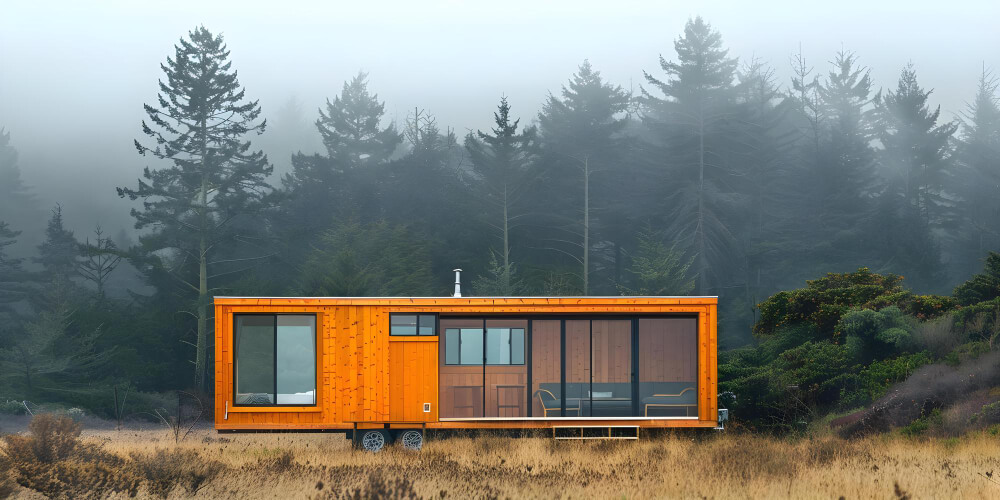The Unseen Impact of Mobile Homes on Real Estate Investment
Updated Mon, Jun 2, 2025 - 5 min read
Top blog articles
Mobile homes are transforming traditional perceptions of investment opportunities and have become a lucrative real estate niche. They offer affordable housing solutions and unique advantages that often fly under the radar compared to conventional brick-and-mortar investments.
This article explores eight ways mobile homes influence the real estate landscape and highlights why savvy investors should consider them as part of their portfolio.
8 Ways Mobile Homes Influence Real Estate Investment
1. Efficient Mobility
One of the often overlooked aspects of mobile homes is their inherent mobility. Unlike traditional homes, mobile homes are easy to relocate to new locations, which allows investors to adapt to market demands.
Specialized mobile home moving companies manage the complex logistics of transporting these properties efficiently across various landscapes. This ability to move homes means investors can reposition their assets to more desirable areas or locations with better rental rates and maximize their income potential without the heavy costs associated with traditional property relocations.
2. Affordable Housing Solution for a Growing Market
Mobile homes play a significant role: they provide affordable housing and fill a gap that conventional real estate often overlooks.
As property prices continue to soar, these homes are viable alternatives for individuals and families who cannot afford traditional homes. This growing market demand ensures steady returns and lower vacancy rates, which makes mobile homes attractive to any real estate investment strategy.
Investors can profit from this trend by buying and leasing mobile home units, catering to a demographic seeking cost-effective living solutions that drive demand for mobile homes as a viable investment.
3. Resilience During Economic Downturns
Mobile homes tend to perform well during economic downturns. As disposable incomes shrink, more individuals are turning to affordable living arrangements, which increases the demand for mobile home rentals.
The counter-cyclical nature of mobile homes makes them a resilient asset class that can weather market volatility better than many traditional real estate investments.
Investors often see stable or even increased demand for mobile homes during recessions, which can provide a reliable income stream when other investment options might falter.
4. Low Entry Cost with High Returns
Mobile homes require a significantly lower initial investment than traditional real estate investments. The cost of buying a mobile home is a fraction of what a single-family home or condominium would typically demand. This low entry cost allows investors to diversify their portfolios without breaking the bank.
Despite the modest initial outlay, the rental income from mobile homes can be lucrative. Investors often see high returns, particularly when the homes are in desirable locations or well-maintained parks.
Read more: What is GRM in real estate?
5. Rapid Appreciation of Land

While mobile homes themselves might not appreciate like traditional homes, the land they occupy often does. Investors who purchase mobile homes and the land can see substantial appreciation over time. As urban sprawl continues and available land becomes scarcer, the value of these plots can increase significantly.
This Land Value Appreciation adds an unseen benefit to owning mobile homes: investors generate income through rent and benefit from the increasing value of their property holdings. This dual advantage enhances long-term wealth.
Read more: What is a real estate mogul
6. Lower Maintenance and Repair Costs
Traditional real estate usually has high maintenance costs and repairs. Mobile homes, on the other hand, typically come with lower upkeep expenses. Their smaller size and more straightforward construction reduce the cost and complexity of repairs, which saves real estate investors money over time.
Moreover, mobile home parks often include communal amenities and maintenance services that help minimize the burden on property owners. This reduction in ongoing expenses makes mobile homes a favorable option for those seeking a hassle-free investment.
7. Tax Advantages and Incentives
Investing in mobile homes can also offer various tax advantages. For instance, some states that see them as a solution to affordable housing shortages have tax incentives to encourage the development of mobile home parks.
Additionally, property taxes on mobile homes tend to be lower than those attached to traditional homes, which reduces investors’ overall financial burden. These tax benefits can affect the overall profitability of mobile home investments, which is why they are a strategic choice for those looking to optimize their returns through fiscal advantages.
8. Environmental Sustainability
Mobile homes often have a smaller carbon footprint than traditional housing. With energy-efficient designs and advancements in sustainable building materials, many mobile homes now incorporate eco-friendly features that appeal to environmentally conscious buyers and renters.
This environmental aspect adds a modern appeal to mobile homes, which makes them more attractive in a market increasingly driven by green values.
Investors can leverage these sustainable features as unique selling points and attract tenants who prioritize eco-friendly living, thus adding another layer of desirability and value to their mobile home investments.
Conclusion
Mobile homes offer unique investment opportunities beyond traditional real estate by providing affordability, flexibility, and resilience in fluctuating markets. As the demand for affordable housing grows, mobile homes present a strategic way to tap into a dynamic and evolving market.









